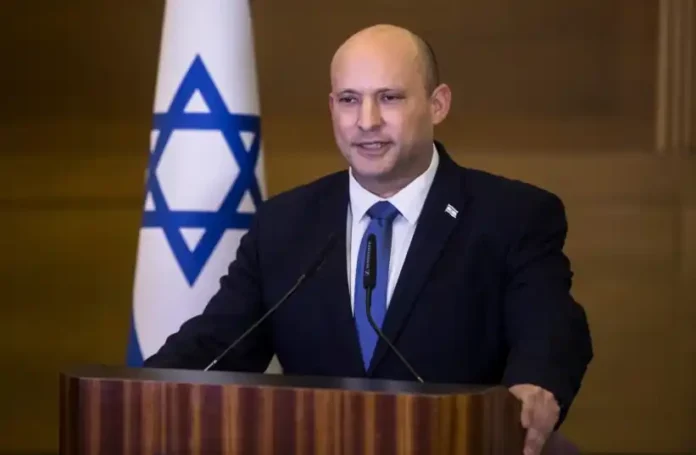In a recent survey conducted by Channel 13, the Israeli political landscape appears poised for a potential shift as elections loom on the horizon.
The poll, released on Sunday, reveals a notable rise in support for a coalition led by right-wing figures Naftali Bennett, Yossi Cohen, Avigdor Liberman, and Gideon Sa’ar, garnering a substantial 32 mandates if elections were held today.
The findings indicate a competitive environment, with Benny Gantz’s state camp following closely behind with 25 mandates.
Meanwhile, Benjamin Netanyahu’s Likud party, a longstanding force in Israeli politics, would secure 21 mandates, underscoring a slightly diminished but still significant presence.
Yair Lapid’s Yesh Atid party trails with 13 mandates, reflecting a solid but not dominant position in the current political landscape.
The survey also highlights the emergence of the Democrats, a coalition between Labor and Meretz under the leadership of Yair Golan, which would receive 9 mandates, signaling a potential resurgence for progressive voices in Israeli politics.
Notably, Gideon Sa’ar’s newly formed party faces a critical challenge, as the poll suggests it might not pass the electoral threshold if running independently.
This factor underscores the complex dynamics of Israel’s multi-party system, where coalition-building and electoral alliances can significantly impact political outcomes.
In terms of broader political blocs, the survey indicates a potential shift towards a coalition of Netanyahu’s opponents, which would secure 63 mandates, excluding votes from the Hadash-Ta’al party.
In contrast, Netanyahu’s supporters bloc would gather 53 mandates, illustrating a closely contested electoral landscape where every mandate counts.
Regarding policy issues, the survey also gauged public sentiment on a proposed hostage deal, revealing that 58% of respondents support the transaction in its current form.
This finding underscores public engagement with national security and diplomatic issues, which are likely to feature prominently in the upcoming election campaigns.
Looking ahead, the upcoming elections could potentially reshape Israel’s political trajectory, with alliances and voter sentiment playing crucial roles in determining the next government.
As the campaign season intensifies, parties across the spectrum will vie for voter support, focusing on a wide range of issues from security and economic policies to social welfare and governance reforms.
In conclusion, while the current poll provides a snapshot of voter preferences, the fluid nature of Israeli politics suggests that outcomes remain uncertain.
With months remaining until the elections, shifts in public opinion and strategic maneuvering among political factions could ultimately redefine the balance of power in the Knesset, setting the stage for a closely watched electoral contest with significant implications for Israel’s future direction.
This article was created using automation technology and was thoroughly edited and fact-checked by one of our editorial staff members

